'He said he was fine': Family's grief after farmer suicide
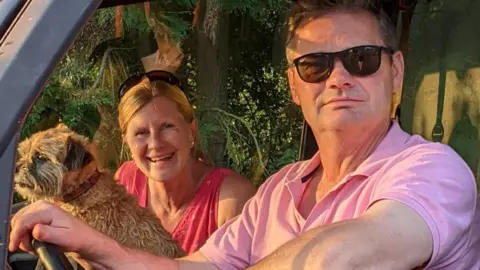 BBC
BBCIn the last months of his life, Neil Stewart's family knew he wasn't in "great fettle" - but he always insisted he was fine.
When the 60-year-old cattle farmer took his own life last summer, it was met with shock by the tight-knit agricultural community of the Scottish Borders.
Now his widow, Caroline, is leading the family he left behind on a 100-mile memorial walk in a bid to prevent similar tragedies.
It comes as new research is undertaken into the causes of the high rate of suicide among farmers in Scotland.
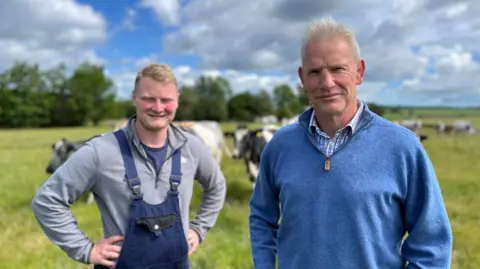
Neil's brother Alastair is among those who will be joining the walk along the Kintyre Way to raise awareness of what has been described as farming's silent killer.
"We did realise that Neil wasn't in great fettle for the last year of his life, but when you spoke to him, he'd say he was fine," he said.
"It [his death] was a terrible shock for all of us, as Neil was such a strong guy.
"There were signs looking back, but it was not something we ever thought could have happened - and we're all still feeling his loss a year on."
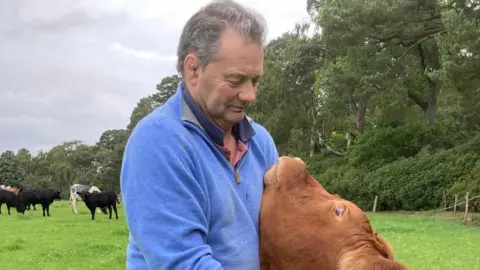
There are no up-to-date figures are available for the number of people working within agricultural in Scotland who have either taken, or are suspected of taking, their own lives.
Previous Scottish and UK studies, dating back to as early as the 1980s, have suggested that farming had the highest proportion of suicides of all industries.
Further post-pandemic research has found that 88% of young farmers rate poor mental health as the biggest problem of working in agriculture.
The Stewart family hope that their walk - in an area where Neil's mother grew up and he enjoyed holidays as a child - will prevent similar deaths.
Alastair said: "We're going to have sore knees and ankles at the end of this walk but that is nothing compared to what so many farmers are going through every day.
"If we can raise awareness of the problem and convince just one person to speak to their partner, their friend or their neighbour, and get the help they need, then it will all be worth it."
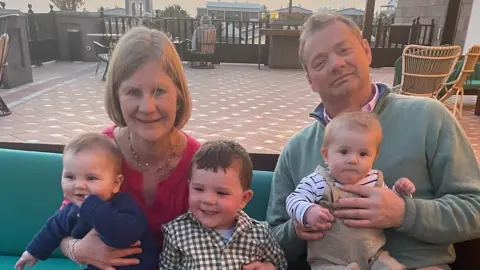
Although factors such as social isolation, volatile trade markets, turbulent weather and labour shortages are thought to be factors behind the alarming rate of suicides within farming, a comprehensive three-year study has just been commissioned to provide more definitive answers.
The Royal Scottish Agricultural Benevolent Institution (RSABI) and the University of Glasgow will conduct the research across Scotland.
Carol McLaren, CEO of RSABI, said: "Farmers take a huge pride in the job that they do - the way they look after their animals and the way they look after their crops.
"What they're not so good at doing is looking after themselves.
"They don't typically reach out and they don't tend to open up - and that's where we get into really challenging territory."
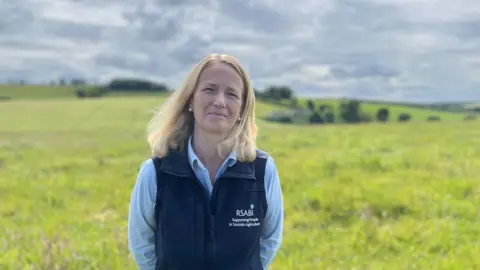
As well as RSABI, organisations such as Breathing Space, the Samaritans, the Scottish Association of Mental Health, and Support in Mind Scotland offer free and confidential support.
And recent reports suggest there has been a gradual increase in the number of agricultural workers who are picking up the phone or going online for help.
Carol added: "There is help out there and the good news is that more people are now reaching out to organisations such as RSABI.
"We are hearing more and more from farmers and retired farmers."
For more information and support on mental health in agriculture, visit BBC Action Line.
